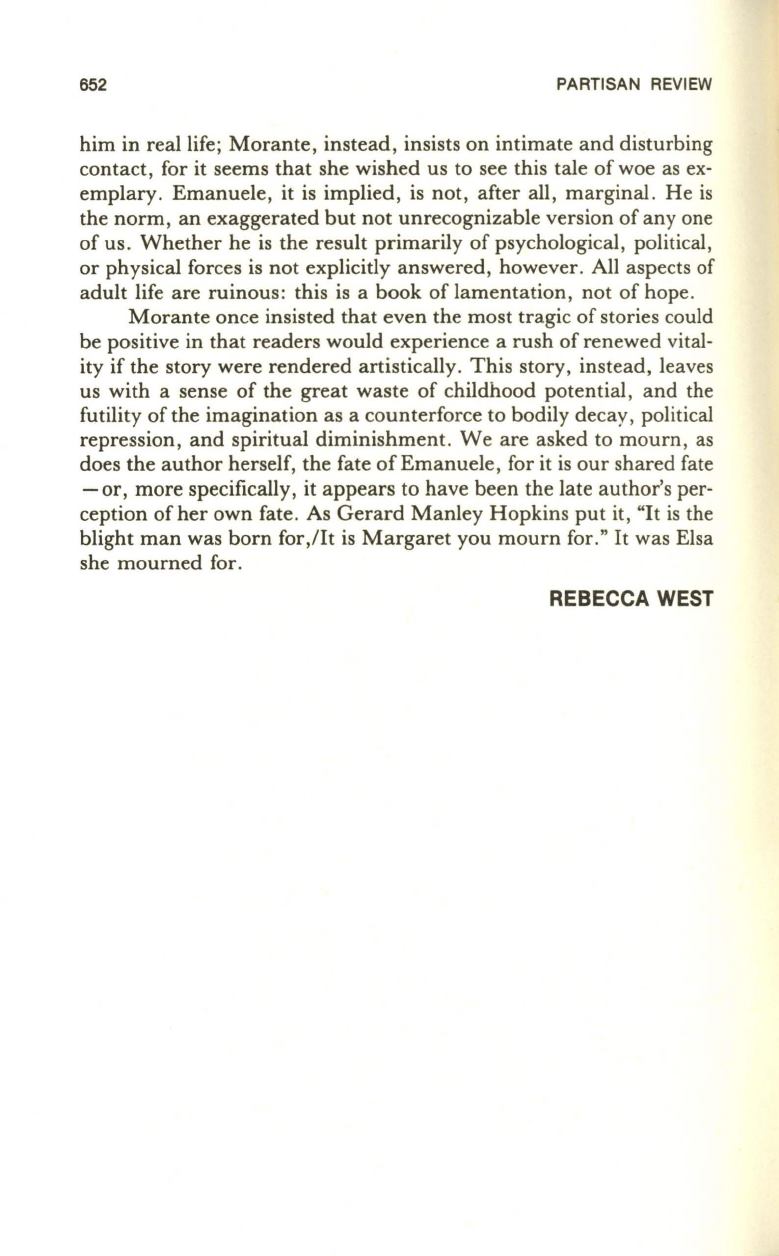
652
PARTISAN REVIEW
him in real life; Morante, instead, insists on intimate and disturbing
contact, for it seems that she wished us to see this tale of woe as ex–
emplary. Emanuele, it is implied, is not, after all, marginal. He is
the norm, an exaggerated but not unrecognizable version of anyone
of us. Whether he is the result primarily of psychological, political,
or physical forces is not explicitly answered, however. All aspects of
adult life are ruinous: this is a book of lamentation, not of hope.
Morante once insisted that even the most tragic of stories could
be positive in that readers would experience a rush of renewed vital–
ity if the story were rendered artistically. This story, instead, leaves
us with a sense of the great waste of childhood potential, and the
futility of the imagination as a counterforce to bodily decay, political
repression, and spiritual diminishment. We are asked to mourn, as
does the author herself, the fate of Emanuele, for it is our shared fate
-or, more specifically, it appears to have been the late author's per–
ception of her own fate . As Gerard Manley Hopkins put it, "It is the
blight man was born for,llt is Margaret you mourn for ."
It
was Elsa
she mourned for .
REBECCA WEST


